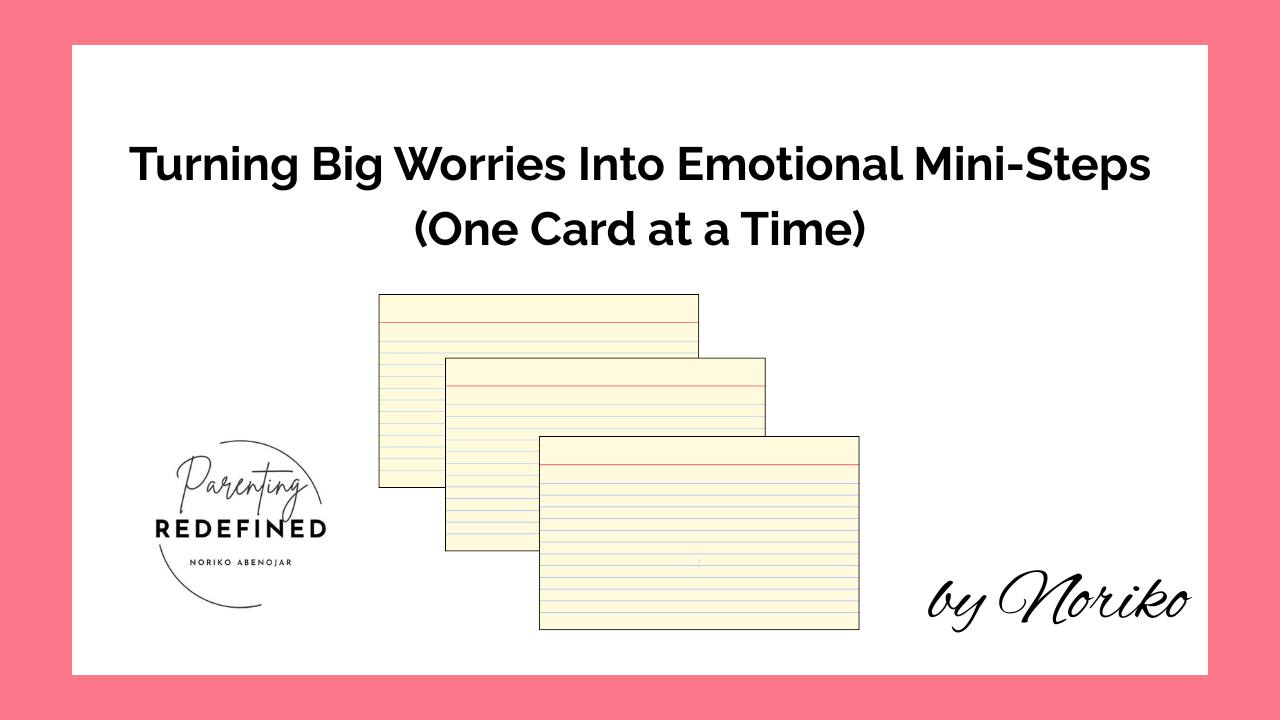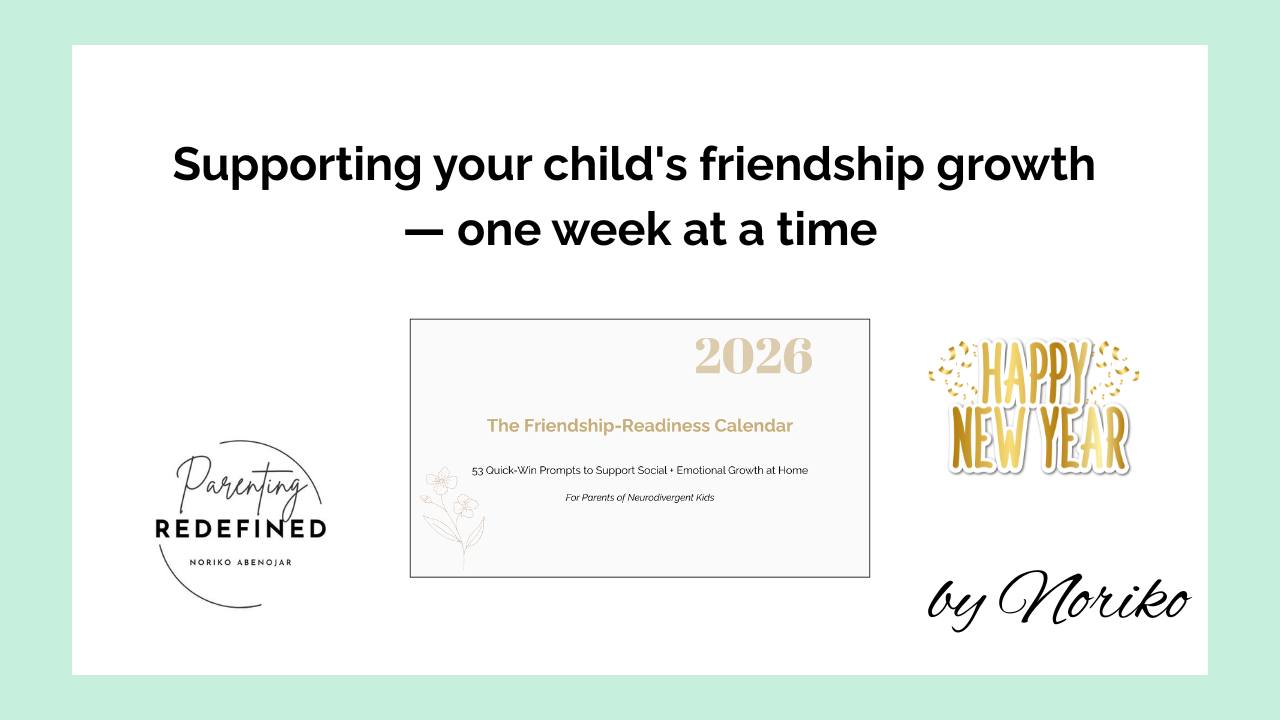Is Your System Set Up to Increase Independence or Dependence in Your Child?
1) Am "I" the System?
2) If I’m not present, does the system support my child in completing this task, or does it rely on me being there?
Every parent wants their child to develop independence, but without realizing it, some "systems" we set up at home may increase dependence instead. When parents are the primary source of reminders—"Time for homework," "Don't forget your jacket," "Start your chores now"—children can come to rely entirely on those prompts.
This reliance often leads to power struggles. Ugg… the dreaded power struggles.
Power struggles are very sneaky and are very good at coming between you and your child without you even realizing it! Naturally, children begin to want more autonomy, and constant parental reminders can create resistance. Whether it’s a toddler refusing to clean up toys or a teenager procrastinating on homework, the root of the struggle often lies in a system that makes the parent central to every task.
Suggestions
Build systems that promote independence by using external tools like visual aids, checklists, and timers. Parents then step back from BEING THE SYSTEM and instead serve as a resource to help the child master and adapt their own systems. When your child has challenges in executive functioning, impulse control, sensory processing etc, this is not an all-or-nothing process. I am not suggesting you do a ‘set it and forget it’ system. It will be a gradual increase towards independence, but we always want to have the end goal in mind and move towards it each day.
Systems Work at Any Age
From toddlers to young adults, the principle is the same: A strong system supports the child to take ownership, while a weak system keeps the parent in charge. The specific tasks will evolve as your child grows, but the foundational idea remains constant—tools and routines that reduce the need for direct parental intervention.
Here are some examples:
-
Pre-schoolers: Use picture schedules for steps like brushing teeth or tidying toys. Label the bins with photos of the actual toys so they can sort without needing to read. Make sure items are easily accessible to your child. This alone will minimize your involvement and promote independence.
-
Elementary-aged kids: Offer chore checklists and simple routines for tasks like packing a school bag or completing homework. Have designated areas for frequently used items. Keep school snacks in a lower drawer in kitchen. Tape a rule inside the drawer indicating how many of which item they can take to school each day. If they ask a question about it, have them read the rule rather than ask you each time.
-
Teenagers: Introduce digital tools like shared calendars, alarms, and reminder apps to help them manage their schedules. Have your teen enter their personal events into the calendar rather than you doing that for them.
-
Young adults: Teach life skills like budgeting, meal prep, and laundry using step-by-step systems they can track independently. Use paper or digital calendars to schedule these tasks into their daily lives. Definitely have your young adult child enter their events into their own calendars and keep it updated.
No matter the age, the guiding question is:
“If I’m not present, does the system support my child in completing this task, or does it rely on me being there?”
If the answer is that the system requires your involvement, it’s time for adjustments.
Avoiding Power Struggles
When parents are deeply embedded in the system, tasks become a battleground. Children may resist because:
-
They associate the task with parental control rather than personal responsibility.
-
They wait for prompts rather than initiating tasks independently.
-
They feel nagged, even when parents are just trying to help.
Strong systems minimize these struggles by shifting responsibility. They empower children to follow through with tasks on their own terms, reducing the back-and-forth.
What Makes a Strong System?
A strong system:
-
Minimizes Verbal Reminders: Instead of saying, “Time to get dressed,” try a visual checklist or a timer.
-
Establishes Clear Routines: Predictable steps reduce decision fatigue. For example, the morning routine can always follow the same order: get dressed, eat breakfast, brush teeth, pack bag.
-
Uses Visual or Physical Cues: Picture charts, color-coded bins, and labeled containers offer clear guidance.
-
Encourages Ownership: Give your child tools like a chore chart they can update themselves or a timer they set to stay on task.
Examples of Independence-Building Systems
-
Morning Routines Without Nagging
-
Dependent System: Parent reminds every step: “Brush your teeth,” “Get dressed.”
-
Independent System: Use a visual chart and a kitchen timer. The child checks off tasks and moves on independently.
-
Homework Time
-
Dependent System: Parent asks, “Have you started yet?” or supervises every step.
-
Independent System: The child has a set workspace, a checklist of needed materials, and a timer to begin at the same time daily.
-
Chore Management
-
Dependent System: Parent reminds, “You need to clean your room.”
-
Independent System: A weekly chore schedule is displayed in a shared space, with a reward system tied to completed tasks.
Start Small, But Start Early
Building systems for independence isn’t just for older kids—it can start wtih pre-schoolers and grows with your child.
Reflect and Adjust
Take a moment to evaluate your current systems:
-
Are you central to every step, or can your child initiate tasks independently?
-
Are the tools in place (visual aids, alarms, lists) clear and accessible to your child?
-
How can you adjust systems to reduce your involvement and increase your child’s ownership?
The Parent’s Role: A Resource, Not a Crutch
When parents shift from BEING THE SYSTEM to being a supportive resource, children gain autonomy while parents experience less frustration. This not only fosters independence but also nurtures a sense of mastery and ownership in the child, making them less resistant and more capable.
Empower your child to thrive with strong systems, not power struggles. The sooner you start, the sooner you’ll see the benefits—for both you and your child.
Did you miss any of the past newsletters?
You can read all of them at www.NorikoAbenojar.com under the 'newsletter' tab.
Noriko Abenojar, MSW PPS
Parenting REDefined
www.NorikoAbenojar.com





